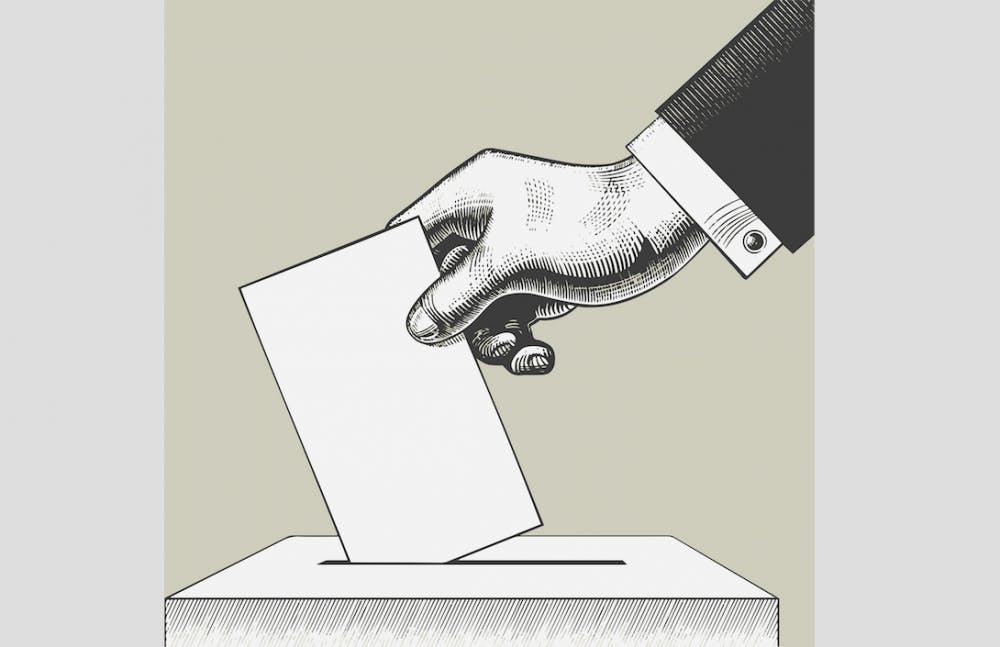Ballot proposal aims to make voting easier
On the ballot Tuesday is a proposal that would make several additions to the Michigan Constitution regarding voting laws.
Proposal 3 was supported by Promote the Vote, a political campaign that aims to make voting more accessible to Michigan voters, according to their campaign manager Todd Cook.
The proposal campaign also received support from the Michigan branches of American Civil Liberties Union, the League of Women Voters, and the NAACP, Cook said.
“The ballot proposal is something to secure voting rights for citizens in Michigan,” Cook said. “(It) ensures access to the ballot and makes sure every vote is secure and counted.”
He said the proposal is calling for seven changes to be added to the Michigan Constitution as constitutional amendments. Adding each of these new laws as a constitutional amendment would make it harder for lawmakers to change them, Cook said.
“Voting rights are a really important thing,” he said. “Ensuring that your rights as a voter are placed beyond the reach of meddlesome legislatures is important.”
Not everything in the proposal is a new rule. Some of these rules are already in affect but would be written into the state’s constitution if the proposal passes.
Cook said the seven rules include the following:
- Michigan voters would be given access to a secret ballot. These allow voters to vote anonymously. Cook said secret ballots would allow people to “vote their conscience” and minimize voting influence from other people.
- Allow Michigan voters to access “no reason” absentee ballots.
- Ensure overseas ballots are sent out on time by the Michigan Government. Cook said this part of the proposal would mostly affect military personnel overseas. He also said 25 percent of overseas ballots aren’t counted because they don’t get sent out on time.
- Ensure the option of straight ticket voting. This means voters will have the option to vote for one political party across all candidate races. Cook said this has been an option in Michigan for the past 127 years, with this election being the first time since that straight ticket voting won’t be an option.
- Change voter registration deadline from 30 days before the election to 15 days before the election. Cook said if someone wants to vote within 14 days of the election, they will require additional steps to be approved.
- Require an audit for Michigan election results.
- Allow automatic registration at secretary of state offices. For example, when someone renews their driver’s license, they would be automatically registered to vote, unless they say otherwise. Cook said it would change this from an “opt-in” system to an “opt-out” system.
Some people have concerns about the suggested proposal, such as Allegan freshman Gabe Butzke, a member of the Registered Student Organization College Republicans.
He is against the proposal, citing concerns of voter fraud and suppression of third-party candidates. He is concerned about how people would vote with a straight-ticket option.
“It makes people think about who they're voting for less,” Butzke said. “I make a lot of phone calls (for) the Republican party and knocked on a lot of doors. A lot of people will tell you they’re going to vote straight ticket ... but sometimes that’s not the choice they would want to make.”
However, Butzke doesn’t think everything in the proposal is negative. While he doesn't support same-day registration, he is OK with shortening voter registration date to 15 days and likes the idea of ensuring overseas ballots get out to military personnel on time.
Overall, he views the proposal as a "mixed bag" where the negatives outweigh the benefits.
Political Science professor Jeremy Castle said the bill is a good way to increase the number of people who can participate in a representative democracy.
“Because we live in a representative democracy, it is important to get the views of as large of a segment of the population as possible on how our leaders are doing,” Castle said. “Any time we can expand the number of people and the number of demographic groups that are participating in our democracy, the closer we’re going to get to that ideal of everyone having their voice heard.”







